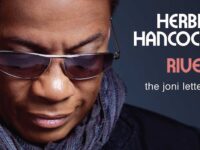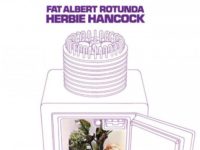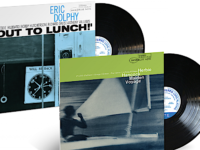The inaugural International Jazz Day on April 30, called by Herbie Hancock as his initial proposal upon being named a goodwill ambassador by UNESCO, will include concerts in New Orleans, Paris and New York. Jazz-related events are also scheduled in several dozen other countries, as well. Performers will include Hancock, Wynton Marsalis, Dee Dee Bridgewater, Wayne Shorter, Christian McBride, Esperanza Spalding, Jack DeJohnette and Dianne Reeves, among others.
“Jazz has been the voice of freedom for so many countries over the past half century,” Hancock told Billboard.com. “This is really about the international diplomatic aspect of jazz and how it has throughout a major part of its history been a major force in bringing people of various countries and cultures together.”
[SOMETHING ELSE! INTERVIEW: Bill Summers discusses the Headhunters’ ‘Platinum’ reunion project, classic sides with Herbie Hancock, and restarting Los Hombres Calientes.]
International Jazz Day is being organized by the U.N. Educational, Scientific and Cultural Organization in partnership with the Thelonious Monk Institute of Jazz, which Hancock chairs. Hancock said support came readily from the 195-member U.N. group “because so many countries have been affected in crucial ways over the years by the presence of jazz.”
April has long been designated as Jazz Appreciation Month in the U.S.
Here’s a look back at our recent thoughts on Herbie Hancock. Click through the title for complete reviews …
DEEP CUTS: HERBIE HANCOCK, “ALL APOLOGIES” (1996): Herbie Hancock almost didn’t pull off The New Standard. This High Concept offering from 1996 found Hancock, with varying degrees of success, adapting songs by popular artists like Peter Gabriel, The Eagles’ Don Henley, Paul Simon, The Beatles and Prince. You had to give him credit — again — for sticking his thumb in the eye of jazz classicism. Even still, no one is going to confuse Sade (whatever her modern charms) with Gershwin. The worst prospect of all, it seemed upon the record’s release, was Hancock’s desire to take on Kurt Cobain’s “All Apologies,” a weary, pissed-off post-modern tune that made Rolling Stone magazine’s list of the Top 500 greatest pop songs of all time. Instead, it’s this Hancock recording’s signature effort.
HERBIE HANCOCK – FAT ALBERT ROTUNDA (1969): The period in Herbie Hancock’s work between the landmark Maiden Voyage of 1965 and the funk-jazz classic Head Hunters eight years later contains some of Hancock’s least understood and most overlooked recordings of his career. It took quite a voyage to get from “Dolphin Dance” to “Chameleon” and as is often said, the journey itself is often more interesting than the destination. Smack dab in the middle of Hancock’s evolution from a premier post-bop stylist to a funk wunderkind, comes a soundtrack of sorts that he composed for Bill Cosby’s then-fledgling cartoon series “Fat Albert,” punningly called The Fat Albert Rotunda. As an avid watcher of this series growing up, I don’t remember any of Hancock’s compositions on the show, but it was a very long time ago. As a grown-up listening to this more intently, it comes across as if Herbie suddenly embraced Motown and Stax style grooves, seemingly leaving behind the more cerebral (read: uncommercial) works that underpinned artier releases like Empyrean Isles.
ONE TRACK MIND: HERBIE HANCOCK, “BUTTERFLY” (1974): Like the best Hancock ballads, this one has inner complexity, outer beauty, and a little mysteriousness that pervades through both layers. And like the best Hancock electric songs, he has a way if getting a warm, human tone out of the Fender Rhodes that few can match. As it was originally conceived, the head leads into an extended soling section that takes up most of the song, before returning to the head again. But what a pretty little head that is. So much so, that it’s been covered numerous times sans the long middle without losing any of the beauty of the tune.
HERBIE HANCOCK – MR. HANDS (1980): The seventies began very creatively for HH, first with the space funk Mwandishi albums followed by the better-known Head Hunters period that firmly eastablished Herbie’s pre-eminance in synthesized instrumental funk. But as the decade wore on, the music got less and less creative until it devolved into generic disco. Right at the end of this era, though, Hancock re-asserts control to generate an electric jazz album with every song distinguishable and original. Jaco Pastorius puts in meaningful contributions on two tracks, while VSOP mates Ron Carter and Tony Williams guests on a nice island-flavored tune appropriately titled “Calypso”. Harvey Mason’s tricky rhythm on “Shiftless Shuffle” is a reminder of the genius he bestowed on Head Hunters seven years earlier. But “Just Around The Corner” has got to rank up there with one of the funkiest tunes ever to come from Hancock, the bass/drum progression is the very definition of funk.
DEEP CUTS: HERBIE HANCOCK, “ELEGY” (1994): “Elegy” begins with a trill from Herbie Hancock, then a persistent, oh-so distinctive tapping that could only be drummer Tony Williams. Next, a nimble, casually funky bass line from Ron Carter. Like a dream made real, Miles Davis’ second great group — with Wallace Roney stepping in for the fallen trumpeter — steps out of the shadows to pay tribute to Davis on 1994’s “A Tribute to Miles” on Qwest. Wayne Shorter and (in a mirage-like turn) Roney, the apprentice who travelled with Miles late in his career. Hancock did a series of limited engagements with this band in the wake of Davis’ 1991 death, then issued this emotional tribute as part of his 38th album three years later — winning a third Grammy along the way. The album also included two tunes from the tour. As much as the record is about Miles, though, this song is about Hancock.
[amazon_enhanced asin=”B000T2KFUY” container=”” container_class=”” price=”All” background_color=”FFFFFF” link_color=”000000″ text_color=”0000FF” /] [amazon_enhanced asin=”B000V9RRPQ” container=”” container_class=”” price=”All” background_color=”FFFFFF” link_color=”000000″ text_color=”0000FF” /] [amazon_enhanced asin=”B0012FB4AW” container=”” container_class=”” price=”All” background_color=”FFFFFF” link_color=”000000″ text_color=”0000FF” /] [amazon_enhanced asin=”B0000087S9″ container=”” container_class=”” price=”All” background_color=”FFFFFF” link_color=”000000″ text_color=”0000FF” /] [amazon_enhanced asin=”B000004712″ container=”” container_class=”” price=”All” background_color=”FFFFFF” link_color=”000000″ text_color=”0000FF” /]





I’m flattered to see that once again, jazz borrows it’s best ideas from the blues. I personally started this group for an International Blues Music Day last August. Don’t get me wrong. Let’s do both, I’m just sayin though. http://www.facebook.com/groups/Internationalbluesmusicday/